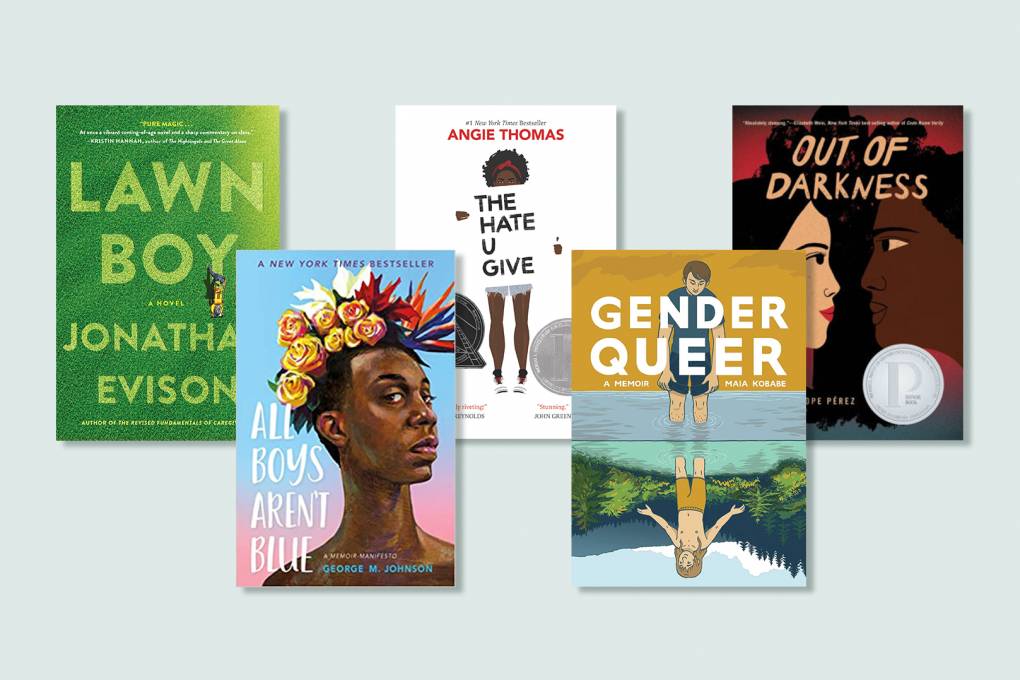[ad_1]
As part of the report, the ALA keeps a list of the top 10 banned books — pulled together from a variety of sources, including news stories and voluntary reports sent to the Office of Intellectual Freedom — that they say is not “exhaustive.” In fact, they say around 90% of book challenges remain unreported and receive no media attention.
Additionally, the ALA cannot track what they call “silent censorship,” when individuals take it upon themselves to make sure that books cannot be found in libraries — hiding them in drawers, tossing them out, or simply taking them off the shelves. This often leads to books being listed in library catalogues but never able to be found when looking for them.
This year, Gender Queer by Maia Kobabe tops the ALA’s 10 most challenged books list. The book, originally published in 2019 is set to be reissued in May. The ALA said that the memoir, done in comic form and recounting Kobabe’s path to gender-identity as nonbinary and queer, has been “banned, challenged, and restricted for LGBTQIA+ content and because it was considered to have sexually explicit images.” Many of the books banned and challenge in 2021 are related to LGBTQ+ topics and most were written by Black or LGBTQ+ authors.
For the last two years, George (recently retitled Melissa) by Alex Gino topped the list; it’s not on the list this year.
The ALA points out that their recent surveys show that a majority of voters — on both sides of the aisle — oppose efforts to have books removed from their local public libraries.
“This poll demonstrates that, in fact, we are hearing from a loud local minority,” said Deborah Caldwell-Stone, director of ALA’s Office for Intellectual Freedom, who attributed the jump in numbers to organized campaigns and movements related to political groups. In fact, it’s a relatively new thing for the ALA to see elected officials challenging books, she added.
Earlier this year, NPR reported how these school issues have been front and center at local elections.
To counteract the campaigns challenging books, the ALA is launching a nationwide initiative meant to empower readers to fight censorship.
“Most libraries and schools have policies that say that people can certainly raise concerns about books. And we support that. That’s part of the First Amendment, the right to petition the government,” Caldwell-Stone said. “But there should be a process involved with that. There should be an effort to verify their claims about the book, to read the work as a whole, to determine whose information needs are being served by the books.”
10 Most Challenged Books of 2021
Here are the books the ALA tracked as most challenged in 2021:
1. Gender Queer, by Maia Kobabe — Banned, challenged, and restricted for LGBTQIA+ content and because it was considered to have sexually explicit images
2. Lawn Boy, by Jonathan Evison — Banned and challenged for LGBTQIA+ content and because it was considered to be sexually explicit
3. All Boys Aren’t Blue, by George M. Johnson — Banned and challenged for LGBTQIA+ content, profanity, and because it was considered to be sexually explicit
4. Out of Darkness, by Ashley Hope Perez — Banned, challenged, and restricted for depictions of abuse and because it was considered to be sexually explicit
5. The Hate U Give, by Angie Thomas — Banned and challenged for profanity, violence, and because it was thought to promote an anti-police message and indoctrination of a social agenda
6. The Absolutely True Diary of a Part-Time Indian, by Sherman Alexie — Banned and challenged for profanity, sexual references and use of a derogatory term
7. Me and Earl and the Dying Girl, by Jesse Andrews — Banned and challenged because it was considered sexually explicit and degrading to women
8. The Bluest Eye, by Toni Morrison — Banned and challenged because it depicts child sexual abuse and was considered sexually explicit
9. This Book is Gay, by Juno Dawson — Banned, challenged, relocated, and restricted for providing sexual education and LGBTQIA+ content
10. Beyond Magenta, by Susan Kuklin — Banned and challenged for LGBTQIA+ content and because it was considered to be sexually explicit
9(MDAxOTAwOTE4MDEyMTkxMDAzNjczZDljZA004))
[ad_2]







